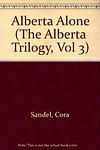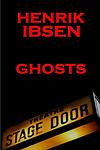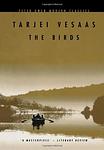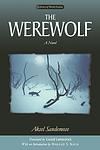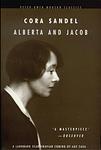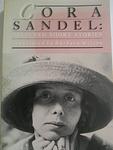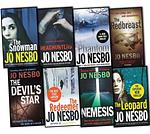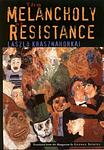The Greatest Norwegian "Fiction" Books Since 1900
Click to learn how this list is calculated.
This list represents a comprehensive and trusted collection of the greatest books. Developed through a specialized algorithm, it brings together 286 'best of' book lists to form a definitive guide to the world's most acclaimed books. For those interested in how these books are chosen, additional details can be found on the rankings page.
Genres
Countries
Date Range
Reading Statistics
Click the button below to see how many of these books you've read!
Download
If you're interested in downloading this list as a CSV file for use in a spreadsheet application, you can easily do so by clicking the button below. Please note that to ensure a manageable file size and faster download, the CSV will include details for only the first 500 books.
Download-
1. Kristin Lavransdatter by Sigrid Undset
Set in 14th century Norway, "Kristin Lavransdatter" follows the life of its titular character from her childhood, through her tumultuous and passionate marriage to Erlend Nikulausson, to her life as a mother and eventual widow. The narrative explores Kristin's struggles with faith, societal expectations, and personal desires, offering a vivid portrayal of medieval Scandinavian life along the way. Despite the many hardships she faces, Kristin remains a strong and resilient woman, embodying the spirit of her time.
-
2. Growth of the Soil by Knut Hamsun
"Growth of the Soil" is a novel that follows the life of a man who leaves his nomadic lifestyle to become a pioneer farmer in the Norwegian wilderness. The narrative traces his journey from solitude to building a family and a thriving farm, showcasing his deep connection with the land and the cyclical nature of life. The book also explores the tension between traditional rural life and modernity, as external forces such as industrialization and societal change begin to impact the protagonist's simple existence.
-
3. Sophie's World: A Novel About the History of Philosophy by Jostein Gaarder
"Sophie's World" is a unique and intriguing novel that intertwines the narrative of a young girl named Sophie with a comprehensive history of Western philosophy. Sophie begins receiving mysterious letters from an unknown philosopher and gradually becomes engrossed in the world of philosophy. The book uses Sophie's journey to explore philosophical concepts and theories, from ancient to modern times, in an accessible and engaging way, making it an excellent introduction to the subject for readers of all ages.
-
4. House with the Blind Glass Windows by Herbjørg Wassmo
"House with the Blind Glass Windows" is a poignant tale of a young girl growing up in Norway during the 1950s. The narrative explores her struggles with family secrets, abuse, and the oppressive nature of her small, rural community. The protagonist's journey towards understanding and overcoming her traumatic past forms the crux of the story, which is set against the backdrop of post-war Europe.
-
5. The Alberta Trilogy by Cora Sandel
"The Alberta Trilogy" is a series of three novels that follow the life of Alberta Selmer, a young woman growing up in a small Norwegian town in the early 20th century. The trilogy explores Alberta's struggle with societal expectations, her pursuit of independence and her journey to becoming a painter. Set against the backdrop of a harsh Norwegian landscape, the series highlights the protagonist's struggle with poverty, her relationships, and her exploration of her identity and place in the world.
-
6. Giants in the Earth by Ole Edvart Rolvaag
"Giants in the Earth" is a historical novel that chronicles the story of a Norwegian pioneer family's struggles with the land and the elements of the Dakota Territory as they try to make a new life in America. It is a profound and accurate depiction of the trials, tribulations, successes, and failures of pioneer life, emphasizing the harsh realities of adapting to a new environment. The novel explores themes of man versus nature, cultural displacement, and the pursuit of the American Dream.
-
7. Selected Plays of Henrick Ibsen by Henrik Ibsen
This compilation includes a selection of plays by a renowned Norwegian playwright, who is often referred to as the father of realism. The collection showcases his talent for exploring complex human emotions, societal expectations, and moral dilemmas. The plays often feature strong female characters, a rarity for the time, and challenge the norms of the 19th-century society, making them timeless and relevant even today.
-
8. The Birds by Tarjei Vesaas
"The Birds" is a poignant story about Mattis, a mentally challenged man living in rural Norway who struggles to fit into society. He lives with his sister, who is his only caretaker and connection to the outside world. Mattis's life changes when he becomes fascinated by a pair of rare birds that decide to nest near his home. The arrival of these birds and a subsequent encounter with a lumberjack disrupt the quiet routine of his life, leading to a series of events that force him to grapple with his place in the world.
-
9. The Werewolf by Aksel Sandemose
"The Werewolf" is a psychological thriller set in a small Norwegian town where the residents are terrorized by a series of brutal murders. The protagonist, a young man, returns to his hometown after many years abroad and is soon suspected of being the werewolf behind the killings. As he seeks to clear his name, he must confront the town's dark past and its deeply ingrained superstitions. The book explores themes of fear, guilt, and the struggle between rationality and irrational beliefs.
-
10. Out Stealing Horses by Per Petterson
The novel is a poignant exploration of a man's relationship with his father and his own identity. Set in Norway, it follows the protagonist's decision to live in solitude after the death of his wife and sister. Through a series of flashbacks, he recalls his childhood, particularly the summer of 1948 when he lived with his father in the country. As he delves into his past, he uncovers his father's involvement in the resistance during World War II and the lasting impact it had on their relationship and his own life. The narrative intertwines the past and the present, reflecting on themes of loss, betrayal, and the complexity of human relationships.
-
11. The Last Of The Vikings by Johan Bojer
This novel is a captivating tale that chronicles the life and struggles of the last generation of Norwegian fishermen and sailors, who are portrayed as modern-day Vikings. Set against the backdrop of the early 20th century, it explores the transition from the age-old traditions of the sea to the modern era, focusing on the characters' internal and external conflicts as they face the decline of their way of life. The narrative delves into themes of bravery, the relentless force of nature, the impact of societal change, and the enduring spirit of a community bound by the sea. Through its vivid descriptions and deeply human characters, the story pays homage to the resilience and adaptability of those who navigate the challenges of changing times.
-
12. Alberta And Jacob by Cora Sandel
Set against the backdrop of a small Norwegian coastal town around the early 20th century, the novel explores the life of Alberta Selmer, a young woman stifled by the constraints of her conservative family and society. Yearning for freedom and an identity of her own, Alberta struggles with the expectations placed upon her as a woman, her complex relationship with her brother Jacob, and her desire to break free from the oppressive environment that surrounds her. Through Alberta's journey, the narrative delves into themes of personal growth, the search for independence, and the challenging path toward self-discovery amidst societal pressures.
-
13. Selected Short Stories Of Cora Sandel by Cora Sandel
The collection of short stories by the Norwegian author offers a rich tapestry of human experience, capturing the subtle nuances of everyday life with a keen eye for detail and a deep understanding of the human condition. Set against the backdrop of early 20th-century Scandinavia, the stories delve into themes of love, loss, identity, and the struggle for self-expression. The author's lyrical prose and empathetic character portrayals invite readers into intimate worlds where ordinary moments reveal profound truths, and the quiet struggles of her characters resonate with universal significance.
-
14. The Redbreast by Jo Nesbø
"The Redbreast" is a gripping thriller that follows the life of Detective Harry Hole as he investigates a series of mysterious murders that seem to be connected to events from World War II. As he delves deeper into the case, Hole uncovers a web of conspiracy, betrayal, and political intrigue that spans decades and threatens to shake the foundations of his own life. With its complex characters, intricate plot, and atmospheric setting, "The Redbreast" keeps readers on the edge of their seats until the final page.
-
15. The Half Brother: A Novel by Lars Saabye Christensen
"The Half Brother" is a compelling narrative that follows the life of a young man named Barnum Nilsen. Born into a Norwegian family with a mysterious past, Barnum navigates through life with a half-brother, Fred, who is both his best friend and his rival. As Barnum grows older, he becomes a successful writer, but his personal life is marked by loss, loneliness, and the weight of his family's secrets. The book is a profound exploration of identity, love, and the bonds of family.
-
16. A Death in the Family by Karl Ove Knausgaard
"A Death in the Family" is a deeply personal and introspective narrative that delves into the complexities of familial relationships, childhood, death, and memory. The protagonist, a writer, is forced to confront his past and his relationship with his alcoholic father after his death. The novel explores the impact of this death on the protagonist's life and his struggle to come to terms with his complicated feelings of love, resentment, and guilt. The narrative is a profound exploration of the human condition, the intricacies of family dynamics, and the lasting impact of grief and loss.
-
17. Melancholy by Jon Fosse
This book delves into the life of Lars Hertervig, a young and impoverished painter from Norway in the 19th century, who grapples with the torment of unrequited love and the burgeoning realization of his own mental illness. Set against the backdrop of his studies at the Düsseldorf Academy of Art, the narrative explores Hertervig's descent into madness, interweaving his intense relationship with nature, his struggles with societal expectations, and his profound isolation. Through a lyrical and fragmented prose, the novel poignantly captures the essence of melancholy and the artist's tumultuous journey towards understanding his own mind and art.
Reading Statistics
Click the button below to see how many of these books you've read!
Download
If you're interested in downloading this list as a CSV file for use in a spreadsheet application, you can easily do so by clicking the button below. Please note that to ensure a manageable file size and faster download, the CSV will include details for only the first 500 books.
Download



